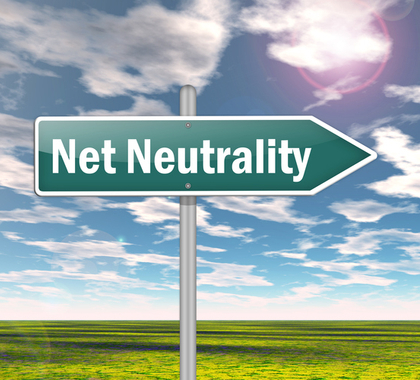Let me be crystal clear: I strongly agree with advertisers and the advertising industry that there are way too many consumer-unfriendly ad formats and automated bad actors running amok on the Web. Legitimate and accountable ad blocking can be a good and necessary solution.
However, as we recently learned from Wall Street Journal, “Google plans to introduce an ad-blocking feature in the mobile and desktop versions of its popular Chrome browser.”
The problems spotlighted in this piece are not with ad blocking, nor with Google participating in legitimate and accountable ad blocking. The problem is first with Google’s hypocrisy, and secondly with Google’s monopolistic behaviors involving Google Chrome, Search, Android, and advertising. Those issues raise legitimacy and accountability questions specific to Google’s ad blocking.
First, consider Google’s hypocrisy. The company supported net neutrality, or the idea that Internet service providers should be prohibited from blocking content on the Internet. Google is now seeking to engage in exactly that activity, which it had claimed was among the worst sins possible.
Since 2006, Google has been a well-known corporate leader, funder, and vocal proponent of the net neutrality movement. The movement calls for the strongest possible utility regulation of ISPs and banning any potential ISP software from blocking or degrading the free flow of Web traffic. Proponents argue that ISPs are supposedly unique in being able to see all a user’s browser activity, and then purportedly being able to sell that data in the marketplace without a user’s permission.
Google Chrome, on the other hand, is the world’s most popular browser, with a dominant 50 percent market share by most accounts. And Google encrypts traffic on its own global network of proxy servers via Chrome, making its browser activity invisible to any ISP, and anyone else on the web, including any third party that might try to ensure that any Google ad blocking is legitimate, accountable, and not anti-competitive.
Net neutrality defenders, who understandably feel beholden to Google’s outsized financial and vocal support for net neutrality, are loathe to question that Google could be engaging in a non-neutral manner.
Maybe they rationalize that since Google’s heart is in the right place and their words on net neutrality are the correct ones, they can trust that Google would never discriminate against another edge provider or garage start-up by blocking or throttling their free and open choice of ad model. They reason that Google would never be like a big, bad ISP.
This brings us to the second problem that is particular to Google, when it comes to ad blocking without accountability and legitimacy measures that ensure, and independently confirm, Google is are not being anti-competitive.
It should be of no surprise that upon hearing of Google’s ad-blocking plans, the European Union’s antitrust chief Margrethe Vestager warned on Twitter that she will closely scrutinize Google’s behavior for abuses of monopoly power.
In a nutshell, what does Google’s ad blocking have to do with antitrust?
In the EU, Google faces three statements of objections (like a grand jury indictment) for illegally and anti-competitively self-dealing in Google Search, Android and search advertising.
How did Google-Chrome so quickly become the world’s dominant share browser? It did so by contractually tying use of Android operating system and branding, to exclusive installation of several Google apps, including Chrome, which has resulted in at least one billion mobile Chrome users.
It is sad when the legitimate and urgent efforts of advertisers and the advertising industry to responsibly clean up the real and proliferating problem of too many consumer-unfriendly ad formats and automated bad actors on the Web must depend on a hypocritical monopolist as the primary implementer of a solution.
It is more than ironic that Google has demonized ISPs for having the potential to block Internet traffic under the “principle” of net neutrality, and demonized copyright interests’ efforts to shut down notorious piracy websites as “censorship.”
George Orwell’s famous allegory in Animal Farm concluded with the warning that “all animals are equal, but some animals are more equal than others.”
That sums up this Google problem.
[Originally Published at The Hill]





